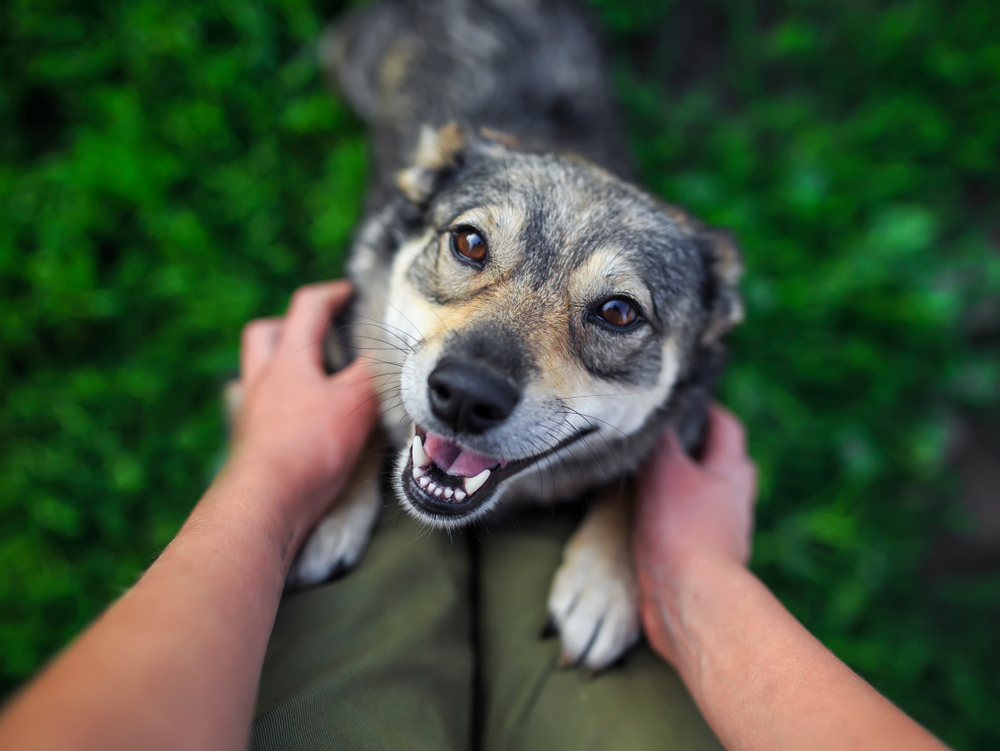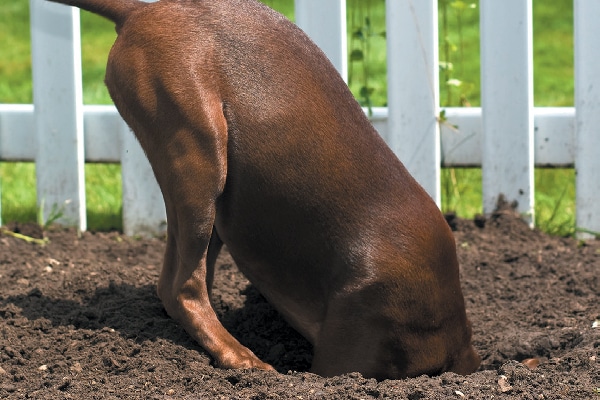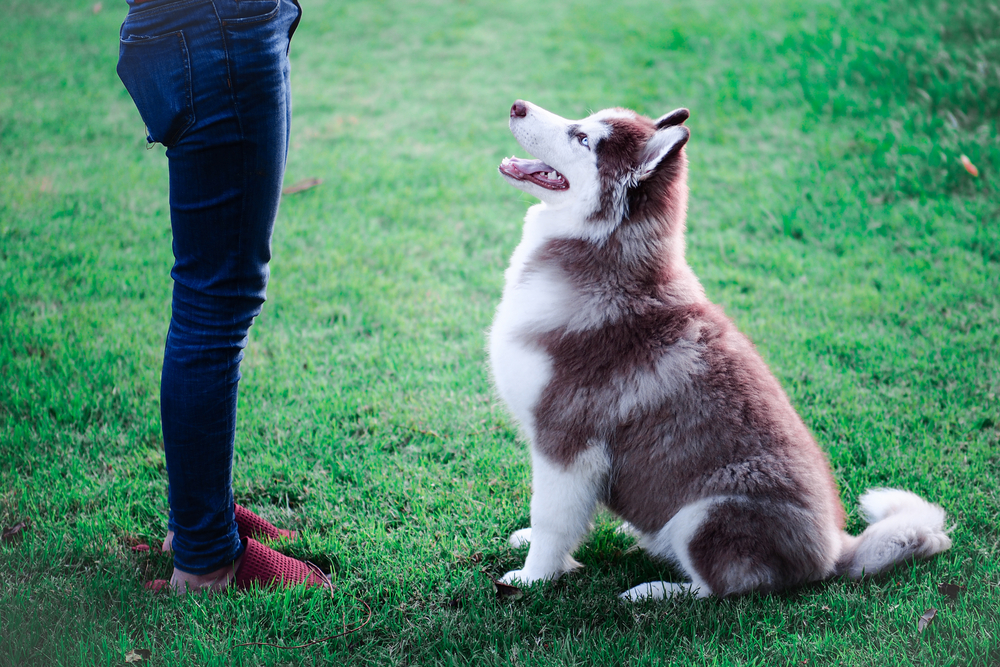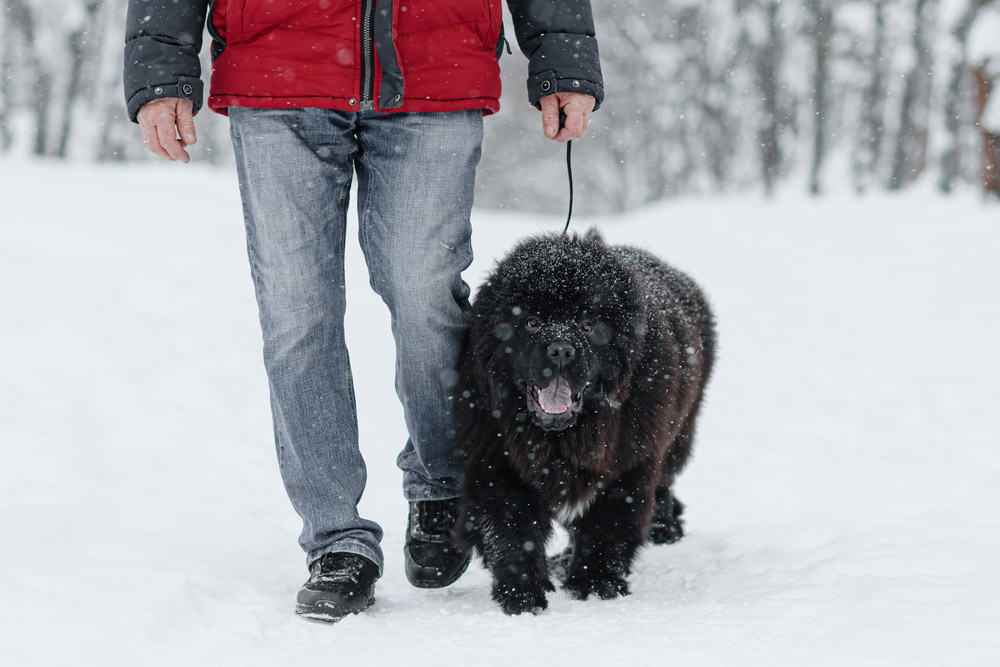Most pet dogs seem to have easy lives when you think of it – they’re treated to lots of cuddles, playtime, walks and treats and generally get to hang out and be mellow for the rest of the day. However, dogs who don’t have enough mental stimulation and physical activities to keep them occupied can easily get bored, which can lead to destructive chewing and digging, nuisance barking, and jumping on people. Depending on the breed and age, some dogs will require more daily exercise than others, particularly working, herding, and sporting dogs, and they need a particularly active lifestyle.
Some of the behaviors associated with boredom can also be related to medical conditions, so it’s important to have your dog checked out by a veterinarian if you think this may be the case. Keep reading to learn about seven signs of boredom and how to keep your pup happy.

The 7 Signs Your Dog Is Bored & What to Do
1. Chewing

Dogs naturally like to chew on things, but this can become excessive in bored dogs. Dogs sometimes chew on furniture or personal belongings when their favorite person is around but busy and otherwise occupied. An even bigger issue develops when they swallow things they shouldn’t in the process, such as parts of their bedding, toys, tissues, owner’s clothes and socks, or others. All of these materials and objects can cause a gastrointestinal blockage, which requires urgent veterinary attention.
- Remedy: Make sure to keep the items you don’t want your dog getting into securely out of reach and provide chew toys so they can engage in their natural need to chew in a way that won’t end in ruined shoes, belts, and sofas, or ingested foreign bodies that require surgery. Consider rotating your dog’s toys every few days to keep things interesting for them, but always supervise them while playing with toys or chewing, especially if they have a habit of swallowing things. Provide them with plenty of walks and physical exercise every single day, in order to tire them out and reduce their boredom.
If you are concerned about you dogs behavior, we suggest speaking to a vet.

If you need to speak with a vet but can’t get to one, head over to PangoVet. It’s an online service where you can talk to a vet online and get the personalized advice you need for your pet — all at an affordable price!
2. Barking

It’s natural for dogs to bark, but some go a bit overboard when bored. They sometimes bark at their humans when they’re looking for entertainment.
- Remedy: Good training is critical to getting dogs to reduce their barking, alongside sufficient daily physical exercise and mental stimulation. Stick with positive reinforcement techniques that use rewards like treats and cuddles to motivate your dog to learn desired behaviors, but do not give them attention or treats when they bark. This way you will reinforce and reward the behavior. You may also consider taking your pet to doggy daycare when you’re working. They will have plenty of companionship and fun activities to keep them busy.
3. Restlessness

Dogs left alone during the day sometimes become overstimulated if they have nothing to do, and they’re bursting with energy when their owners come home. Also, some pups become restless when their favorite people are around but involved in other tasks.
- Remedy: Increasing your dog’s daily exercise may help them eliminate some of their pent-up energy, which can reduce their restlessness. Consider adding activities like fetch or games like frisbee to your dog’s regular walks to ensure they get more exercise. Outings to leash-free secure outdoor areas where they can enjoy running free can also stimulate their minds and bodies.
4. Jumping

Dogs jump on people when they’re excited, but they also do so when they’re bored. Jumping on you can be a way of trying to get your attention when you seem to be ignoring them.
- Remedy: Dogs can be trained not to jump on people using positive reinforcement training techniques and principles. However, they should not be rewarded by receiving attention or praise as they jump up, as this will reinforce the behavior. Providing interactive games or safe toys, such as a Kong that cannot be destroyed or swallowed, filled with tasty treats, to keep your dog busy when you’re working or are going to be otherwise engaged can keep them entertained and busy. For example, snuffle mats allow dogs to use their noses to find treats and can be great cures for boredom, alongside physical exercise and mental stimulation.
5. Excessive Grooming

Licking and chewing are part of the normal canine self-grooming routine, but dogs sometimes groom and scratch themselves too much when they’re bored. Excessive licking and grooming can cause hair loss and tender spots on their skin and will require prompt veterinary attention, before it gets worse. If left untreated, it often leads to a vicious cycle of self-inflicted skin lesions, and it may be focused either on a particular body area, such as front paws, or could be more generalized.
Excessive licking, chewing, or scratching may also indicate a presence of an underlying medical issue such as external parasites like fleas, allergic skin disease, skin infection, painful joints, and others. Speak to your vet if your dog is grooming themselves excessively. Your dog may also need an Elizabethan collar to prevent them causing further damage.
Boredom-related licking usually occurs when dogs are just hanging out and don’t have anything to do.
- Remedy: Providing sufficient physical exercise, games, and toys can relieve boredom, but some breeds must exercise outdoors to stay happy. Hunting and herding dogs, in particular, are often happiest when they have jobs to do and tasks to accomplish. Training and learning tricks can be great ways to give bored dogs jobs to keep them occupied. You can also try hiding treats around the house for your dog to find.
6. Digging

Digging is a normal canine activity, but bored dogs can tear up your furniture or carpet, or leave holes around the yard, when they resort to digging. Dogs without enough entertainment turn to digging simply because it’s fun and gives them something to do.
- Remedy: Puzzle toys can provide enriching entertainment. They require dogs to solve puzzles to get treats and provide mental stimulation. There are puzzles available in a range of difficulty levels, from super easy to advanced.
7. Sleeping Too Much

Dogs generally sleep about 12 hours a day, but it varies, depending on their energy level, breed, age, health, and lifestyle. Large dogs, puppies, older dogs, and working dogs usually sleep more than smaller ones, but dogs of all sizes may spend too much time sleeping when they’re bored.
Excessive sleeping can also be a sign of illness. It’s usually accompanied by lethargy, reduced exercise tolerance, changes in appetite, fever, reluctance to move much, or signs such as coughing if there is heart disease, or others. If your dog is starting to sleep more than usual, or has any of the mentioned signs of illness, it’s important to get them checked by a veterinarian as soon as possible.
- Remedy: Providing new safe toys can help with boredom by giving them fun ways to spend their time during the day. However, they may need more time interacting with humans, and if you work long hours, you can hire a pet sitter to play with and feed your pup, or get them out and about with a dog walker. It’s important to provide your pooch with plenty of physical exercise before and after work, and to get them more active during the weekends with long walks or hikes, depending on their age and breed.

Conclusion
Dogs can get bored, and like people, they’re happier when they have fun activities to fill their days and keep them engaged and busy. There are a few ways pet parents can relieve some of their companions’ boredom, including increasing their physical activity, providing safe and indestructible toys, and hiring a pet sitter or a dog walker to entertain them when they’re away at work.
But remember, some breeds, such as working, herding, and sporting dogs, need a fair amount of daily exercise and mental stimulation, and are not always suitable for owners that spend a lot of time at work. All dogs require physical exercise, the amount of which will depend on their breed, age, health and activity level, and providing this will reduce their boredom.
Some signs attributed to boredom, such as increased sleeping or excessive licking and scratching, may be a sign of underlying illness and should be checked out by the vet, while chewing toys, furniture, and other objects may lead to a gastrointestinal blockage.
Featured Image Credit: Jaromir Chalabala, Shutterstock












